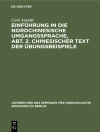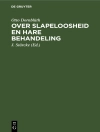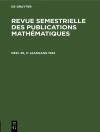Emotions have increasingly attracted the attention of the sciences and academia. The topic is all the more timely since we have witnessed a global trend towards highly emotionalized discourses across societies and religions. Discourses are less guided by rational arguments and “facts”. Instead, narratives, sometimes manipulative, influence the thoughts and activi-ties of our societies. In this context, the authoritative texts of the monotheistic religions are experiencing a renaissance. Tanach, Bible and Qur’an do not only “emotionalize”, they also offer ancient concepts of emotions which affect the present.
This book brings the interdependencies of antiquity and (post)modernity into an interdisci-plinary discussion. How should we understand feelings at all? This book explores the ap-proaches to emotions as portrayed and understood in various sources and disciplines. The contributors share their perspectives on methodological questions concerning research on the emotions. Scholars in religious studies and theology from different traditions—Jewish, Christian, Islamic—enter into dialogue with other disciplines, such as psychology, literary studies, sociology, cultural studies, philosophy, and historiography.
A propos de l’auteur
Ute E. Eisen, Universität Gießen;
Heidrun E. Mader, Universität Köln;
Melanie M. Peetz, Hochschule Sankt Georgen, Frankfurt/Main.












